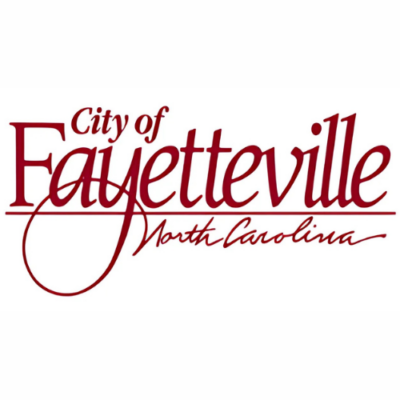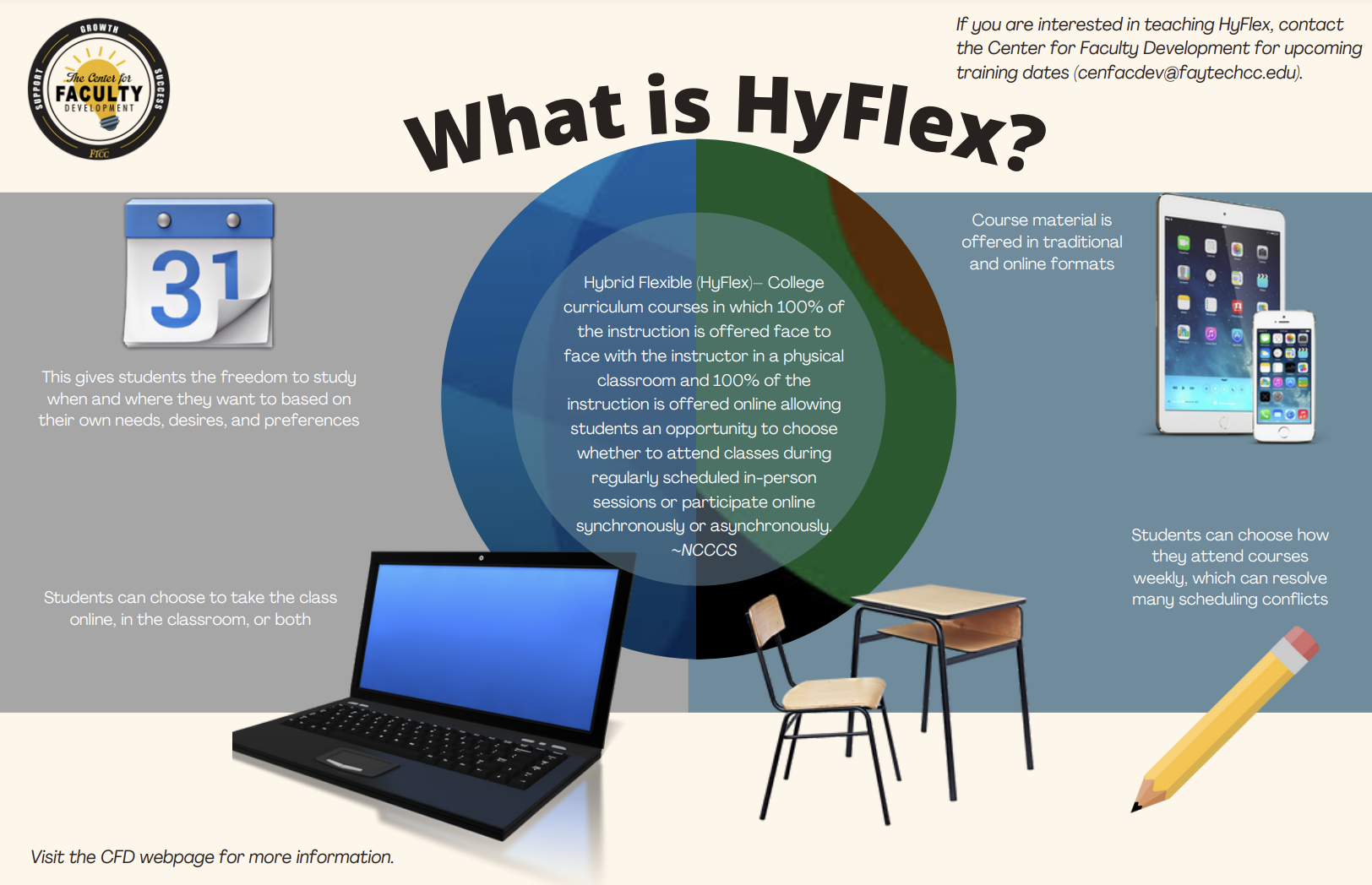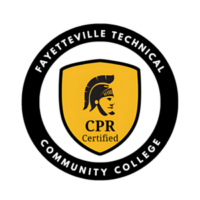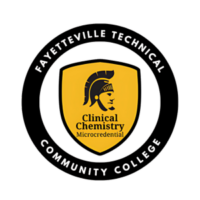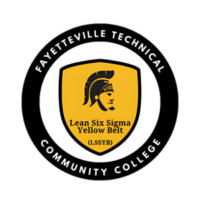Office Information
Satisfactory Academic Progress
Federal and state regulations require an institution to establish a reasonable satisfactory academic progress (SAP) policy to determine whether an eligible student is progressing satisfactorily in his or her academic program to receive assistance under the Title IV, Higher Education Act programs. A student is expected to maintain a minimum level of progress towards completion of a degree, diploma, or certificate program that is eligible for financial aid.
Procedure Statement
In order to be eligible for financial aid, students must meet the minimum guidelines:
1. Qualitative Standard – Must not be suspended according to the College’s academic suspension procedure. In addition, a student must maintain a cumulative Grade Point Average (GPA) of 2.0.
2. Quantitative Standard (financial aid pace) – Completion of a minimum percentage of work is measured to ensure that a student completes his or her program of study within the maximum timeframe allowed based on the published length of the student’s academic program. The number of hours attempted is defined as the total cumulative number of credit hours for which you were enrolled at the generic 10% point of each term. The total number of hours earned is defined as the total cumulative number of credit hours for which the student received a passing grade as noted on the student’s academic transcript.
Must earn 67% of the total cumulative credit hours attempted (including all transfer credits). For example, if the student attempted 30 credits, he or she must earn at least 20 credits of the 30 credits attempted (30 x 67% = 20).
3. Maximum Time Frame – Must complete a program of study in a timeframe not to exceed 150% of the published length of the program, excluding the first 30 attempted credit hours of developmental education. This will be measured in credit hours (e.g., if the academic program length requires 60 credit hours, then the maximum time frame cannot exceed 90 credit hours attempted). Transfer credits accepted by FTCC from other institutions are included in the maximum timeframe calculation.
4. Monitoring –The Financial Aid Office will monitor satisfactory academic progress every semester (including summer).
5. Change of Major –Students who change their major are still responsible for maintaining satisfactory academic progress according to the policy as outlined. A review of satisfactory academic progress will be based on the student’s program of study. Changing from an associate degree program to a diploma or a certificate program may result in a student losing their federal and state eligibility.
6. Students may submit an appeal using the Satisfactory Academic Appeal e-Form and attaching appropriate documentation to explain extenuating circumstances that prevented them from maintaining Satisfactory Academic Progress. Appeals will be reviewed by a Satisfactory Academic Progress Committee. The Senior Vice President for Academic and Student Services or the Associate Vice President for Student Services may make professional judgment calls regarding all appeals. The full version of the Satisfactory Academic Progress policy is available on FTCC’s website at http://www2.faytechcc.edu/financial-aid/SAP-Policy-Revised.pdf .
(PDF format) |
 |
 |
Enrollment Status & Financial Aid Disbursements
FTCC is an attendance-taking college. Enrollment and changes on the FAFSA application are checked throughout the semester to determine if a student is eligible to receive a disbursement. Listed here are circumstances that impact financial aid eligibility to receive or pay back financial aid:
(PDF) (PDF)- Availability of Funds: Packaged aid is available ten (10) days before the course section start date for a student who is eligible to receive funds. Funds available for bookstore charges and disbursements are based on the eligible number of credits in which a student is enrolled. The chart below shows the enrollment status of a student who is registered for 16 credits in classes with different course section start dates:
| Course | Credits | Start Date | End Date | Last Day to Drop for a 75% Refund |
When Aid is Available for Bookstore Charges* |
FA Enrollment Status | % of Ineligible Aid in Self-Service |
|---|---|---|---|---|---|---|---|
| CTS-130-1901 | 3 | 1/13/2020 | 3/9/2020 | 1/16/2020 | 1/4/2020 | Half-time (6 Credits) | 50% |
| ENG-111-0902 | 3 | 1/13/2020 | 5/13/2020 | 1/23/2020 | 1/4/2020 | ||
| WBL-111-5001 | 1 | 2/10/2020 | 5/13/2020 | 2/18/2020 | 2/1/2020 | Half-time (7 Credits) | 50% |
| BUS-115-2902 | 3 | 3/12/2020 | 5/13/2020 | 3/17/2020 | 3/3/2020 | Full-time (13 Credits) | N/A |
| CTS-130-2901 | 3 | 3/12/2020 | 5/13/2020 | 3/17/2020 | 3/3/2020 | ||
| MKT-120-5901 | 3 | 4/1/2020 | 5/13/2020 | 4/3/2020 | 3/23/2020 | Full-time Plus (16 Credits) | N/A |
*Funds for a student who is considered a first-year, first-time loan borrower will be available 30 days after the start of the student’s first class (34 CFR 685.303(b)(5)).
- Enrollment Status: There are many factors that are used to determine how much financial aid a student is eligible to receive each semester. Listed below is the breakdown of the number of credits in which a student has to be registered to determine financial aid eligibility for federal and state funds:
| Pell Grant (Federal Title IV Funds) |
FSEOG (Federal Title IV Funds) |
Direct Sub, Unsub, and Plus Loans (Federal Title IV Funds) |
NC Community College Grant (State Funds) |
NC Education Lottery Scholarship (State Funds) |
|---|---|---|---|---|
| 1-5 Credits = 25% (Less than 1/2-time) |
1-5 Credits = Not eligible (Less than 1/2-time) |
1-5 Credits = Not eligible (Less than 1/2-time) |
1-5 Credits = Not eligible (Less than 1/2-time) |
1-5 Credits = Not eligible (Less than 1/2-time) |
| 6-8 Credits = 50% (1/2-time) |
6-8 Credits = 100% | 6-8 Credits = 100% | 6-8 Credits (1/2-time) | 6-8 Credits = 50% |
| 9-11 Credits = 75% (3/4-time) |
9-11 Credits = 100% | 9-11 Credits = 100% | 9-11 Credits (3/4-time) | 9-11 Credits = 50% |
| 12+ Credits = 100% (Full-time) |
12+ Credits = 100% | 12+ Credits = 100% | 12-14 Credits (Full-time) | 12+ Credits = 100% |
| 15+ Credits (Full-time Plus) |
- Enrollment Status During the Summer Session: To be considered a full-time student for Financial Aid during the summer session, a student must be enrolled in at least 12 credits. A student who is packaged the Pell Grant can be eligible to receive aid for a minimum of one credit if applicable. For a student who is packaged the Pell Grant for the summer session and received a disbursement for full-time enrollment fall and spring semesters, the student must be enrolled in at least six credits for the summer to be eligible for the Pell Grant if applicable. Information about the Pell Grant eligibility can be found on the Understand Aid tab on studentaid.gov web site.
- Financial Aid Census Date (Aid Recalculation) (34 CFR 690.80 (b)): A student who is receiving the Pell Grant and state funds must be enrolled in classes on or after the Financial Aid Census Date for each course. Aid will not be disbursed for withdrawn courses with a last date of attendance, or LDA, (as confirmed by the instructor) before the Financial Aid Census Date. A student’s enrollment is reviewed during each disbursement period throughout the term. Enrollment for a student who is registered for courses with different Financial Aid Census Dates is calculated on each Financial Aid Census Date.
If a student was eligible to receive a disbursement and was later withdrawn from classes, the student’s last date of attendance must be on or after the Financial Aid Census Date to be eligible to receive the disbursement. If the student’s last date of attendance is before the Financial Aid Census Date AND the student’s enrollment status decreases, the student must return the amount owed. The Financial Aid Census Dates are listed on the Financial Aid Disbursement Dates and Schedule. See the chart below for an example:
| Course | Credits | Start Date | End Date | Last Day to Drop | Enrollment Status | Last Attend Date (LDA) | FA Census Date | FA Enrollment Status | Note |
|---|---|---|---|---|---|---|---|---|---|
| CTS-130-1901 | 3 | 1/13/2020 | 3/9/2020 | 1/16/2020 | Withdrawn | 1/20/2020 | 1/31/2020 | Less-than Half-time (3 Credits) |
LDA before 1/31/2020 |
| ENG-111-0902 | 3 | 1/13/2020 | 5/13/2020 | 1/23/2020 | Enrolled | N/A | 1/31/2020 | ||
| WBL-111-5001 | 1 | 2/10/2020 | 5/13/2020 | 2/18/2020 | Withdrawn | 3/13/2020* | 3/4/2020 | Less-than Half-time (4 Credits) |
LDA after 3/4/2020 |
| BUS-115-2902 | 3 | 3/12/2020 | 5/13/2020 | 3/17/2020 | Enrolled | N/A | 4/1/2020 | Full-time (12 Credits) |
LDA after 4/1/2020 |
| BUS-137-2901 | 3 | 3/12/2020 | 5/13/2020 | 3/17/2020 | Enrolled | N/A | 4/1/2020 | ||
| CTS-130-2901 | 3 | 3/12/2020 | 5/13/2020 | 3/17/2020 | Withdrawn | 4/15/2020** | 4/1/2020 | ||
| MKT-120-5901 | 3 | 4/1/2020 | 5/13/2020 | 4/3/2020 | Withdrawn | 4/15/2020 | 4/17/2020 | Three-quarter time (9 Credits) |
LDA before 4/17/2020 |
*The LDA for WBL-111-5001 is before the next FA Census Date, 4/1/2020, which makes the course ineligible for aid.
**The LDA for CTS-130-2901 is before the next FA Census Date, 4/17/2020 which makes the course ineligible for aid.
- Conversion Programs (34 CFR 668.8(k) & (l)): Any course level 100 – 109 will not transfer into an associate’s degree program. Courses that are level 100 – 109 that are required courses in academic programs will have to be converted from credit hours, to clock hours, and back to credit hours for students receiving Title IV funds. Some credit hours for courses may be more than, less than, or equal to the registration credits after the conversion calculation. If the converted credits for a course is more than or equal to the registered credits, the credits will not be adjusted. However, if the converted credits for a course is less than the registered credits, the student’s aid will be based on the lower credits. The determining factor to convert the credit hours is based on the academic programs with required courses that are level 100 – 109. A student in a conversion program must have every registered credit converted, even if the course is level 110 or higher. The conversion programs that are eligible for financial aid are listed below:
| Program Code | Title |
|---|---|
| D55140 | Cosmetology Diploma |
| D45240 | Dental Assisting |
| D45970 | Nurse Aide Diploma |
| D35300 | Plumbing |
| D45660 | Practical Nursing |
| D50420 | Welding Technology |
Example of a student’s registration credits after the credits are converted:
| Prefix No. | Title | Registration Credits | Converted Credits | Financial Aid Credits |
|---|---|---|---|---|
| AAA-109 | Course 1 | 1 | 1 | 1 |
| BBB-106 | Course 2 | 3 | 1 | 1 |
| CCC-110 | Course 3 | 9 | 10 | 9 |
| DDD-140 | Course 4 | 2 | 1 | 1 |
| EEE-101 | Course 5 | 3 | 1 | 1 |
| Totals | 18 | 14 | 13 | |
- Return to Title IV (R2T4) (34 CFR 668.22): A student receiving financial aid who withdraws or stops attending will, in most cases, be required to return a portion of financial aid received. The amount of federal and state funds returned to the federal and state programs will be determined based on the last date of attendance. A student receiving Title IV funds who withdraws on or before the 60% date of the student’s scheduled enrollment or a student receiving state funds who withdraws on or before the 35% date of the student’s scheduled enrollment could be required to return funds received.
If a student does not withdraw but instead receives a grade of F, the last date of attendance for the course will be used to determine if the F is earned or unearned. An unearned F is regarded as a W for the purposes of a Return of Title IV calculation. These funds must be returned even if the student did not receive a refund from FTCC. A student might owe FTCC and/or the U.S. Department of Education a substantial amount of money. (Aid recalculation is processed before the Return of Title IV calculation for a student receiving the Pell Grant and state funds).
- Post-withdrawal Disbursement (PWD): If a student stops attending classes before Title IV funds are disbursed, the school must determine if Title IV funds could have been disbursed based on the percentage of Title IV funds earned by the student for the days the student participated in classes for the term. The school will process a post-withdrawal disbursement if applicable.
- Loans Processed for Disbursements: Loans at FTCC are disbursed in three installments during the fall and spring terms and two installments during the summer session. A student who has accepted the loan offer must be enrolled in at least six credits each date funds are posted to the student’s account to be eligible for a loan payment. If a student withdraws from a class, the student’s last date of attendance must be on or after the post date to be eligible for a loan payment. A student’s enrollment is reviewed during each disbursement period throughout the term.
If a student was eligible to receive a loan payment and was later withdrawn from classes AND fell below six credits, the student’s last date of attendance must be on or after the post date to be eligible to receive the loan payment. If the student’s last date of attendance is before the post date, the student must return the amount owed. See the enrollment example below for a regular loan borrower:
| Course | Credits | Start Date | End Date | Enrollment Status | Last Attend Date (LDA) | Post Date | Disbursement Date | FA Enrollment Status | Note |
|---|---|---|---|---|---|---|---|---|---|
| CTS-130-1901 | 3 | 1/13/2020 | 3/9/2020 | Withdrawn | 1/20/2020 | 1/31/2020 | 2/11/2020 | Less-than Half-time (3 Credits) |
Not eligible for loan disbursement |
| ENG-111-0902 | 3 | 1/13/2020 | 5/13/2020 | Enrolled | N/A | ||||
| WBL-111-5001 | 1 | 2/10/2020 | 5/13/2020 | Withdrawn | 3/13/2020* | 3/4/2020 | 3/13/2020 | Less-than Half-time (4 Credits) |
Not eligible for loan disbursement |
| BUS-115-2902 | 3 | 3/12/2020 | 5/13/2020 | Enrolled | N/A | 4/1/2020 | 4/10/2020 | Full-time (12 Credits) |
Eligible for 1st, 2nd, 3rd loan disbursement |
| BUS-137-2901 | 3 | 3/12/2020 | 5/13/2020 | Enrolled | N/A | ||||
| CTS-130-2901 | 3 | 3/12/2020 | 5/13/2020 | Enrolled | 4/15/2020** | ||||
| MKT-120-5901 | 3 | 4/1/2020 | 5/13/2020 | Withdrawn | 4/15/2020 | 4/17/2020 | 4/27/2020 | Three-quarter time (9 Credits) |
N/A |
- Loans for the Summer Session: A student who receives a loan disbursement fall and spring semesters must submit the Summer Loan application. The Summer Loan application will be reviewed by a Financial Aid Technician to ensure that the applicant does not exceed the Cost of Attendance and annual loan limit for the financial aid year nor the aggregate loan limit.
- Scholarships: Most outside scholarships require a student to be enrolled in at least six credit hours to receive a disbursement. A student should refer to the “My Awards” screen in Financial Aid Self-Service for additional information about the requirements for the packaged scholarship.
- Ineligible Courses: Financial aid will not pay for courses that are not in a student’s academic program. Ineligible courses will be listed in the “Other Courses” section of the student’s academic program evaluation. A student should seek assistance with course planning from their Academic Advisors.
- Remedial Courses (34 CFR 668.20): The federal regulations that govern federal financial aid impose a limit on the total number of developmental courses a student can take and receive federal financial aid. The regulation states, “A student may receive federal aid for up to one academic year’s worth of remedial classes. For the purpose of this limit, that is 30 semester hours.” A student’s academic transcript at FTCC will be reviewed to determine if the student is approaching this limit for developmental coursework, including current enrollment. Developmental coursework includes all classes with a course number less than 100 (i.e., ENG 002, ENG 011, MAT 003, MAT 071, etc.). Federal financial aid (including subsidized, unsubsidized, and plus loans) will not pay for developmental hours in excess of 30 hours.
- Changes on the FAFSA: A student may become ineligible for aid after the start of classes because of changes on the FAFSA. A student in this situation will be sent an email from the Financial Aid Office with information on the steps to take to resolve the loss of financial aid eligibility if applicable.
- Transfer Monitoring: A student’s record is sent to the National Student Loan Database System (NSLDS) to verify the student’s financial aid history with the Department of Education. Federal regulations require that FTCC send records for all students packaged aid at FTCC to NSLDS for monitoring. A transfer monitoring hold is placed on the student’s record until the data is returned from NSLDS. The Transfer Monitoring Hold is usually removed within 48 hours. No action is needed on the student’s part. The student’s file will be monitored for 120 days. At the end of the 120 days, if the student is still enrolled at FTCC, the student’s file will be sent to NSLDS again to continue the monitoring process for an additional 120 days.
The Transfer Monitoring hold will remain on a record when a student is receiving aid at two schools for the same enrollment period or when a student’s name, date of birth, or Social Security Number does not match the NSLDS record. The hold will be removed when the conflicting information has been resolved.
- Satisfactory Academic Progress (SAP) Evaluation: At the start of each financial aid year, a student’s financial aid record is reviewed to determine if the student has a current SAP evaluation. A student’s academic progress is evaluated at the end of each semester the student is enrolled. The SAP evaluation statuses are listed below:
| SAP Status | Description | Eligible for Aid | Color in Self-Service |
|---|---|---|---|
| SAT | Satisfactory (Eligible for aid) | Yes | Green |
| SX | SAP Regained | Yes | Green |
| MX1 | Maximum Time Frame 1 Semester | Yes | Green |
| MX2 | Maximum Time Frame 2 Semesters | Yes | Green |
| MX3 | Maximum Time Frame 3 Semesters | Yes | Green |
| MX4 | Maximum Time Frame 4 Semesters | Yes | Green |
| PA | Probation on Appeal | Yes | Yellow |
| WG | Warning GPA | Yes | Yellow |
| WP | Warning Pass Rate | Yes | Yellow |
| WB | Warning Both GPA & Pass Rate (Pace) | Yes | Yellow |
| WMX | Warning Near Max Time Frame | Yes | Yellow |
| D | Appeal Denied | No | Red |
| SG | Suspended GPA | No | Red |
| SP | Suspended Pass Rate (Pace) | No | Red |
| SB | Suspended Both GPA and Pass Rate (Pace) | No | Red |
| VGP | Violated Appeal GPA | No | Red |
| VPR | Violated Appeal Pass Rate (Pace) | No | Red |
| VBT | Violated Appeal Both GPA and Pass Rate (Pace) | No | Red |
| MAX | Maximum Time Frame Exceeded | No | Red |
(PDF)
Class Withdrawal Policy
College Refund Policy
When a student withdraws from the college, refunds will be returned to the programs from which the student received aid. The date of withdrawal is determined by the Registration and Records Office and is based upon the date the Withdrawal Form is completed including all signatures and is submitted to the Registration and Records Office. Refunds are processed according to the refund policy.
eFORMS
Financial Aid Electronic Forms (eFORMS) is a powerful tool accessible from Self-Service that can be used to submit missing documents to the Financial Aid Office. The eFORM is linked to a student’s Self-Service account.
When a student submits a completed eFORM, the Financial Aid Office receives an immediate notification. Once all required forms are received, a student’s file will be reviewed. If a form is missing information or is completed incorrectly, it will be rejected and the student will receive an email detailing the corrections needed.
Accessing eFORMS
- Read Understanding Financial Aid E-Forms (PDF)
- Login to Self-Service
- Select “Financial Aid eFORMS” under the Financial Aid Section
Use the icons at the top to view all forms, saved drafts, forms you need to submit, and copies of completed forms.
Important Policies
Course Repeat Policy
Students may only receive federal financial aid funding for one repeat of a previously passed course.
More Financial Aid Resources
Aunt Bertha
Aunt Bertha picks up where Uncle Sam leaves off by making it easy for people to find the assistance they need in just a few clicks. Having served 1.8 million people to date, Aunt Bertha has the largest network of resources for every zip code, no matter the reason.
Whether you’re in need of food, childcare, or just a way to get to work, there are hundreds of expertly pin-pointed resources in your community, all thanks to Aunt Bertha.
Some other areas of assistance that Aunt Bertha matches resources to are:
- Financial Assistance
- Food
- Education
- Goods
- General Care
- Healthcare
- Housing
- Legal
- Work
- Transportation





